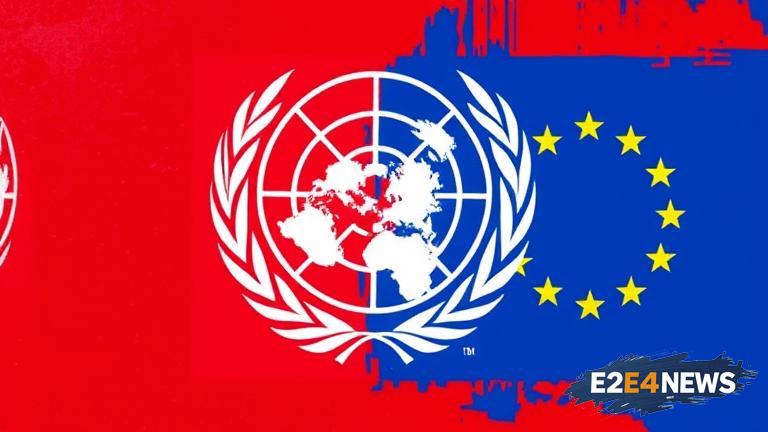The World Trade Organization (WTO) has delivered a landmark verdict against the European Union’s (EU) tariffs on palm oil, a move that is expected to have far-reaching implications for the global biofuels market. The ruling, which was announced recently, found that the EU’s tariffs on palm oil imports from Indonesia and Malaysia were unfair and violated international trade agreements. The EU had imposed the tariffs in an effort to protect its domestic biofuels industry, but the WTO ruled that this move was discriminatory and favored European producers over their Asian counterparts. The verdict is a significant blow to the EU’s trade restrictions and is likely to lead to a surge in palm oil imports from Indonesia and Malaysia. The two countries are the world’s largest producers of palm oil and have been lobbying against the EU’s tariffs for several years. The WTO ruling is also expected to have a positive impact on the global economy, as it will lead to increased trade and competition in the biofuels market. The EU has been criticized for its protectionist policies, and this verdict is seen as a major setback for the bloc’s efforts to restrict imports from other countries. The palm oil industry is a significant contributor to the economies of Indonesia and Malaysia, and the WTO ruling is expected to provide a major boost to the sector. The EU’s tariffs on palm oil were imposed in 2019, and since then, imports from Indonesia and Malaysia have declined significantly. However, with the WTO ruling, imports are expected to increase, and the EU’s domestic biofuels industry is likely to face increased competition. The verdict is also seen as a victory for free trade and is expected to have a positive impact on the global trade landscape. The EU has said that it will appeal the WTO ruling, but it is unclear whether the appeal will be successful. The WTO ruling is the latest development in a long-running dispute between the EU and Indonesia and Malaysia over palm oil tariffs. The dispute began several years ago, when the EU imposed tariffs on palm oil imports from the two countries. Indonesia and Malaysia argued that the tariffs were unfair and violated international trade agreements, and they took their case to the WTO. The WTO ruling is a significant victory for Indonesia and Malaysia, and it is expected to have a major impact on the global biofuels market. The palm oil industry is a significant sector in both countries, and the WTO ruling is expected to provide a major boost to the economy. The EU’s tariffs on palm oil were seen as a major obstacle to trade between the EU and Indonesia and Malaysia, and the WTO ruling is expected to remove this obstacle and lead to increased trade and cooperation between the two regions. The WTO ruling is also expected to have a positive impact on the environment, as it will lead to increased use of sustainable biofuels. Palm oil is a highly efficient crop that can be used to produce a range of biofuels, including biodiesel and biojet fuel. The increased use of palm oil in the EU is expected to lead to a reduction in greenhouse gas emissions and help the bloc meet its climate change targets. The WTO ruling is a significant development in the global trade landscape, and it is expected to have far-reaching implications for the biofuels market. The EU’s tariffs on palm oil were seen as a major barrier to trade, and the WTO ruling is expected to remove this barrier and lead to increased trade and cooperation between the EU and Indonesia and Malaysia. The palm oil industry is a significant sector in both Indonesia and Malaysia, and the WTO ruling is expected to provide a major boost to the economy. The EU’s domestic biofuels industry is likely to face increased competition from Indonesian and Malaysian producers, and this is expected to lead to lower prices and increased efficiency in the sector. The WTO ruling is a significant victory for free trade and is expected to have a positive impact on the global economy. The increased use of palm oil in the EU is expected to lead to a reduction in greenhouse gas emissions and help the bloc meet its climate change targets. The WTO ruling is a major development in the global trade landscape, and it is expected to have far-reaching implications for the biofuels market.
